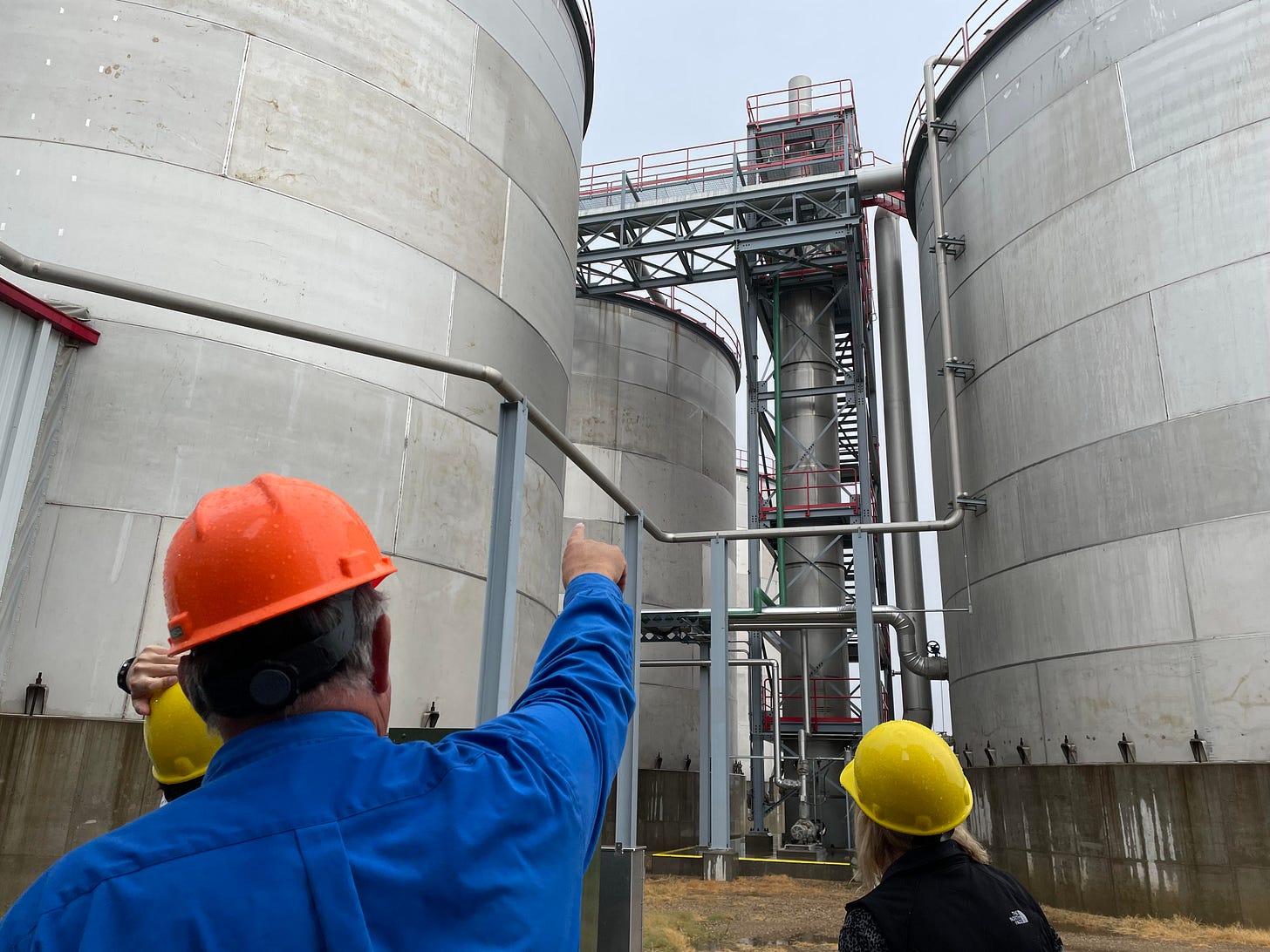Busy ballots await voters: A run down
South Dakotans to choose state’s future with seven constitutional amendments, initiated measures
Drug policy, eminent domain and pipelines, Medicaid work requirements and gender neutral language.
South Dakotans have a busy ballot waiting for them when they head to the polls on Election Day. Beyond a crop of legislative and statewide contests awaiting their votes, seven questions about proposed changes to the state Constitution and South Dakota codified law present an opportunity to have a say in the future of the Mount Rushmore State.
AMENDMENT E - A gender neutral constitution
Placed on the ballot by the South Dakota Legislature at the request of Gov. Kristi Noem, the ballot measure would update the South Dakota Constitution by replacing male pronouns (he, his, him) with gender-neutral language when referencing certain officeholders or individuals. For example, text referring to the governor would change from “he shall be commander-in-chief” to “the governor shall be commander-in-chief.” The amendment aims to modernize language to reflect both male and female officeholders and honors South Dakota's history of female leadership, according to supporters. Opponents say the changes are unnecessary and costly, asserting that current language doesn't hinder women from holding office. Voting "Yes" updates the language; voting "No" leaves it unchanged.
AMENDMENT F - Legislative authority over Medicaid work requirements
The South Dakota Legislature is asking voters for the ability to create a work requirement for adult Medicaid recipients who are able to work. The Biden Administration currently forbids states from doing so, and states must receive federal approval for any work requirements before implementing them should they be allowed under future presidential administrations. Supporters argue that social welfare programs should promote self-sufficiency by encouraging work or job training for able-bodied adults. Opponents contend the amendment could result in individuals losing health care due to bureaucratic issues or illness. A "Yes" vote authorizes the work requirement option; a "No" vote keeps the Constitution unchanged, maintaining current Medicaid coverage rules.
POINT: South Dakotans need healthcare, not red tape from Amendment F
COUNTERPOINT: South Dakotans want welfare programs to promote work
AMENDMENT H - Open primaires
Voters will decide whether South Dakota should ditch its primary election system for a "top two" primary that includes all candidates for a single office in one primary election, regardless of political affiliation. The top two vote-getters would advance to the general election.Backed by South Dakota Open Primaries, Amendment H’s supporters say passage would foster civic engagement and inclusion because independent voters are shut out of most primary contests that take place every two years in South Dakota. Opponents say an open primary system would undermine party autonomy and further hinder minority party candidates from appearing on a general election ballot.
POINT: Amendment H promotes deception, fewer options
COUNTERPOINT: Amendment H aids democracy, not hurts the Democratic Party
AMENDMENT G - Abortion
The ballot measure proposes to do away with South Dakota’s near-total ban on abortion and replace it with an amendment to the Constitution that legalizes abortion.Backers say the proposal mirrors the Roe v. Wade trimester framework that governed nationwide abortion policy for 50 years, while opponents characterize Amendment G as one of the least restrictive abortion rights proposals in the country.Amendment G is backed by Dakotans for Health, while Life Defense Fund has led the opposition campaign.
POINT: The devil is in the details
COUNTERPOINT: Freedom is the answer
INITIATED MEASURE 28 - Tax repeal for food, consumables
Voters will be treated to a third measure in 32 years asking them to remove a state tax on food. Both earlier attempts were rejected overwhelmingly. But times change, and the last time voters weighed in on the issue was 2004.
Since then, Democrats have repeatedly tried to remove the tax in the Legislature, but failed.
Opponents of the latest attempt argue the Depression-era tax has been a stable tax source that funds essential government services. Proponents say it’s regressive, hurting lower income folks harder.
Questions have also been raised about its legal implications. The measure eliminates the tax on anything for “human consumption.” That could mean tobacco, say the opponents. They also question what it would mean for cities that have their own tax on food. While the measure allows cities to collect the tax, the attorney general warns the measure could require judicial review to resolve conflicts in law. Dakotans for Health, which sponsored the measure, argues the objections are a smokescreen.
POINT: Opposition campaign to food tax cut ballot measure misleading, disingenuous
COUNTERPOINT: Initiated Measure 28 will require cuts to schools, nursing homes
INITIATED MEASURE 29 - Recreational marijuana
Is the third time a charm? Supporters of legal, recreational cannabis in South Dakota sure hope so.Mount Rushmore State voters will again cast ballots on a measure seeking to legalize recreational marijuana, the third time since 2020.This time, the ballot measure initiated by South Dakotans for Better Marijuana Laws asks voters to legalize marijuana possession, cultivation, and sales by adults at least 21 years old but does not establish policies to regulate cannabis. The backers of the measure leave much of that policy, including potential taxes, to the Legislature. Voters in 2020 did give recreational marijuana a majority vote in 2020, but that was overturned by the state Supreme Court. A measure in 2022 was rejected.
Opponents have mounted a vigorous campaign saying marijuana legalization comes with high social costs. But proponents point out that none of the 24 states that have legalized cannabis have gone back.
(From 2022):
POINT: Give South Dakotans the freedom to use pot responsibly
COUNTERPOINT: Research shows why marijuana legalization should be resoundingly rejected
REFERRED LAW 21 - Carbon pipeline, ‘Landowner Bill of Rights’
Referred Law 21 asks voters to decide whether a law passed by the state Legislature regarding carbon pipeline regulations should stand.Signed by Gov. Kristi Noem in March, Senate Bill 201 was dubbed the “Landowner Bill of Rights” by supporters who champion the legislation as a compromise between landowners opposed to carbon sequestration pipelines on their properties and companies like Summit Carbon Solutions looking to pump carbon dioxide emitted by ethanol plants to underground storage in North Dakota. The pending law mandates carbon dioxide pipelines be built a foot deeper than federal regulations require, mandates pipeline companies repair drain tile damage for the lifetime of the pipeline, indemnifies landowners from any damage caused by the pipeline, and establishes a $1 per linear foot tax for counties to assess on pipelines in their jurisdictions. Opponents, like the South Dakota Property Rights and Local Control Alliance, which organized the signature drive to refer the law, contend the measure undermines county governments’ local authority regarding pipeline regulations, concedes eminent domain powers to Summit Carbon Solutions and violates private property rights. A yes vote affirms Referred Law 21, while a no vote repeals it.
POINT: Repealing ‘Landowner Bill of Rights’ would hurt farmers, ranchers, counties
COUNTERPOINT: 'Landowner Bill of Rights' is really a 'bill of sale'































Yes, thanks for the info.
Thanks for the summaries.